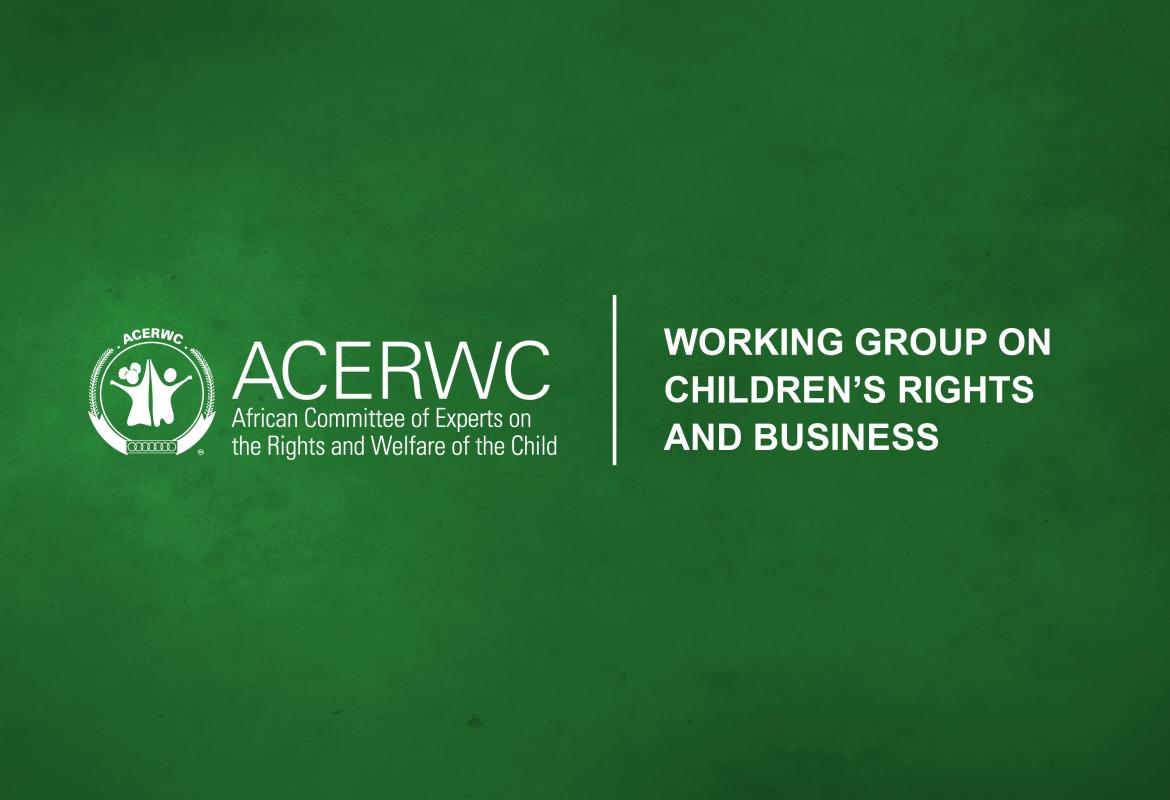The African Committee of Experts on the Rights and Welfare of the Child (ACERWC), through its Working Group on Children’s Rights and Business, joins global partners in commemorating the World Day Against Child Labour. This day is not merely symbolic, it is a moral and political reckoning.
Despite important strides, millions of children across Africa remain trapped in cycles of exploitation, denied their fundamental rights to education, protection, and development. According to recent data from the International Labour Organization, Africa bears the heaviest burden of child labour globally, with approximately 92 million children-52 million boys and 40 million girls engaged in work that robs them of safety, learning, and enjoyment of their rights. Many are forced into hazardous sectors such as agriculture, mining, and domestic service, where they endure long hours, dangerous conditions, and physical and emotional harm. These are not mere statistics; they represent lost childhoods and stolen futures.
Yet, there is hope. Over the past decade, many African countries have taken bold action. The African Charter on the Rights and Welfare of the Child (ACRWC) has been ratified by 51 out of 55 Member States and domesticated in numerous national legal systems. Reforms in legislation, investments in child-sensitive budgeting, and strengthened social protection systems including cash transfers, school feeding programmes, and scholarships have contributed to reducing the economic drivers of child labour. Family-friendly policies, such as maternity benefits and wage protections, have also helped alleviate the pressures that push children into work.
These gains reflect what is possible when political will aligns with sustained investment and collective determination. However, progress remains fragile and uneven. In rural and conflict-affected regions, social safety nets are inadequate. The informal economy, which employs a significant proportion of child labourers, often operates beyond the reach of labour inspections and regulation. Education systems frequently fail to meet the needs of children with disabilities, displaced populations, and those living in poverty, leaving them especially vulnerable to exploitation. Climate crises, online risks, and ongoing conflicts further erode protective environments and push children into precarious livelihoods.
The ACERWC reiterates unequivocally: child labour is not merely a social or economic issue, it is a violation of children’s rights, as enshrined in Article 15 of the African Children’s Charter. It undermines the foundations of Agenda 2040, which envisions an Africa fit for children. Good intentions must not replace bold action, and incremental gains must not obscure the urgency of this crisis.
Now is the time to accelerate action.Member States must prioritise free, quality education, including vocational and life skills training, to provide children with viable alternatives to labour. Every barrier to school attendance, whether financial, physical, or structural, must be removed. Simultaneously, social protection systems must be expanded and made more inclusive, targeting families most at risk, particularly those impacted by conflict, displacement, and environmental shocks. These are not optional measures; they are essential lifelines.
The ACERWC calls for greater policy coherence and accountability across sectors. Labour inspections must be extended to the informal and high-risk industries where child exploitation is most rampant. Laws must be rigorously enforced, and national action plans must be equipped with clear targets, transparent monitoring mechanisms, and adequate resources to deliver tangible results. These efforts must be inclusive and sensitive to gender, disability, and geographic disparities to ensure no child is left behind.
The private sector also holds a critical responsibility. Businesses must adopt child rights-based policies, implement due diligence throughout supply chains, and take decisive action to eliminate child labour in all operations, particularly in high-risk sectors such as mining, agriculture, and domestic work. Economic gain must never come at the expense of a child’s health, education, or dignity.
Regional cooperation is essential to protect children on the move. The ACERWC calls for harmonised protection protocols, robust data-sharing mechanisms, and coordinated cross-border rescue and rehabilitation efforts. Migration frameworks at continental and sub-regional levels must fully integrate child labour concerns and embed child protection at their core.
Above all, children must be seen not just as beneficiaries but as agents of change. Their voices expressed through school clubs, youth councils, and advocacy platforms must be heard, respected, and reflected in policy and programming. Recognising children’s agency enriches our interventions and affirms their inherent dignity.
As we mark this World Day Against Child Labour, the ACERWC honours the resilience of children enduring unjust burdens, and the families and communities who, despite adversity, continue to hope and fight for a better future. The Committee commends the individuals, institutions, and governments working to end child labour but emphasises that commemoration alone is not enough. It must translate into concrete commitments and courageous action.
The ACERWC recalls the promises made under Agenda 2040 and the Abidjan Declaration, and encourages Member States to uphold their obligations under the African Charter on the Rights and Welfare of the Child. Ending child labour is not an isolated goal, it is central to Africa’s pursuit of social justice, economic transformation, and sustainable development.
The path forward is clear. The tools exist. The partnerships are in place. What is needed now is urgent, sustained, and unified action. Every lost childhood is a loss we cannot afford.
The ACERWC, through its Working Group on Children’s Rights and Business, stands ready to support Member States, regional institutions, civil society, businesses, and children themselves. Together, we can build an Africa where no child is forced to work, but one where every child is protected, empowered, and free to thrive.
Today, we renew our pledge: to end child labour once and for all, protect the promise of childhood, and build a just, inclusive, and dignified future for Africa’s children.







